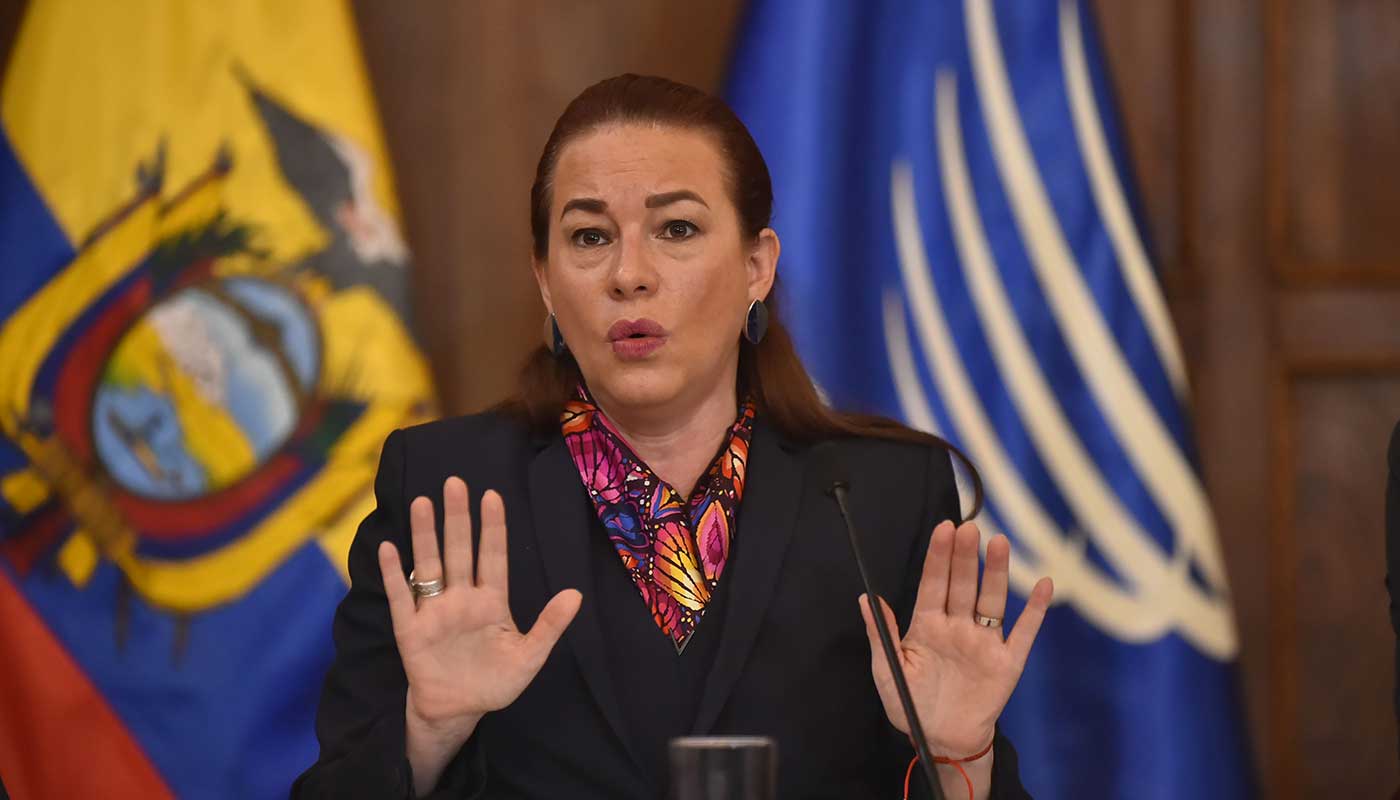Julian Assange granted Ecuadorian citizenship
Revelation comes amid diplomatic standoff with Britain

A free daily email with the biggest news stories of the day – and the best features from TheWeek.com
You are now subscribed
Your newsletter sign-up was successful
Ecuador has granted citizenship to Wikileaks founder Julian Assange, who remains holed up in the South American country’s embassy in London.
The country's foreign minister, Maria Fernanda Espinosa, revealed during a press conference in Quito yesterday that Australian-born Assange had been granted citizenship on 12 December.
“The Ecuadorian government is empowered to grant nationality to the protected person and thus facilitate ... his inclusion in the host state,” she said.
The Week
Escape your echo chamber. Get the facts behind the news, plus analysis from multiple perspectives.

Sign up for The Week's Free Newsletters
From our morning news briefing to a weekly Good News Newsletter, get the best of The Week delivered directly to your inbox.
From our morning news briefing to a weekly Good News Newsletter, get the best of The Week delivered directly to your inbox.
The move was meant to “confer legal immunity on Assange”, The Guardian reports, allowing him to leave the embassy where he has been sheltered for more than five years.
Espinosa’s announcement came hours after Britain revealed that it had denied a request from Ecuador to grant Assange diplomatic status, and once again called for the Wikileaks founder to “face justice”.
He took refuge in the embassy when Sweden sought to extradite him on rape charges, amid claims that he would face politically motivated prosecution in the US if he went to court. US attorney general Jeff Sessions has previously stated that arresting Assange is “a priority”, and The New York Times says there is a “strong possibility that the United States has issued a secret arrest and extradition warrant”.
A free daily email with the biggest news stories of the day – and the best features from TheWeek.com
-
 Crisis in Cuba: a ‘golden opportunity’ for Washington?
Crisis in Cuba: a ‘golden opportunity’ for Washington?Talking Point The Trump administration is applying the pressure, and with Latin America swinging to the right, Havana is becoming more ‘politically isolated’
-
 5 thoroughly redacted cartoons about Pam Bondi protecting predators
5 thoroughly redacted cartoons about Pam Bondi protecting predatorsCartoons Artists take on the real victim, types of protection, and more
-
 Palestine Action and the trouble with defining terrorism
Palestine Action and the trouble with defining terrorismIn the Spotlight The issues with proscribing the group ‘became apparent as soon as the police began putting it into practice’
-
 Epstein files topple law CEO, roil UK government
Epstein files topple law CEO, roil UK governmentSpeed Read Peter Mandelson, Britain’s former ambassador to the US, is caught up in the scandal
-
 Iran and US prepare to meet after skirmishes
Iran and US prepare to meet after skirmishesSpeed Read The incident comes amid heightened tensions in the Middle East
-
 Israel retrieves final hostage’s body from Gaza
Israel retrieves final hostage’s body from GazaSpeed Read The 24-year-old police officer was killed during the initial Hamas attack
-
 China’s Xi targets top general in growing purge
China’s Xi targets top general in growing purgeSpeed Read Zhang Youxia is being investigated over ‘grave violations’ of the law
-
 Panama and Canada are negotiating over a crucial copper mine
Panama and Canada are negotiating over a crucial copper mineIn the Spotlight Panama is set to make a final decision on the mine this summer
-
 Why Greenland’s natural resources are nearly impossible to mine
Why Greenland’s natural resources are nearly impossible to mineThe Explainer The country’s natural landscape makes the task extremely difficult
-
 Iran cuts internet as protests escalate
Iran cuts internet as protests escalateSpeed Reada Government buildings across the country have been set on fire
-
 US nabs ‘shadow’ tanker claimed by Russia
US nabs ‘shadow’ tanker claimed by RussiaSpeed Read The ship was one of two vessels seized by the US military